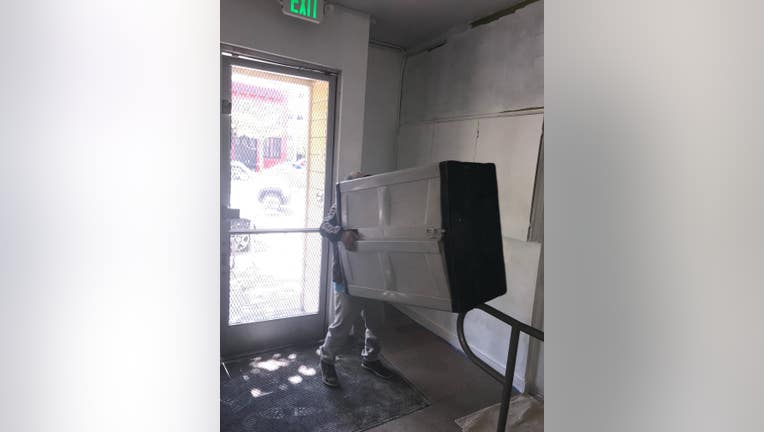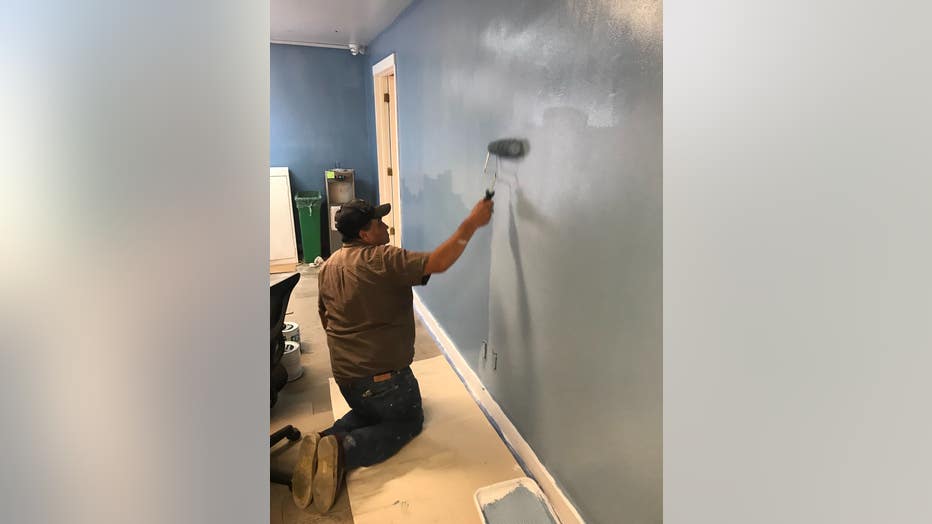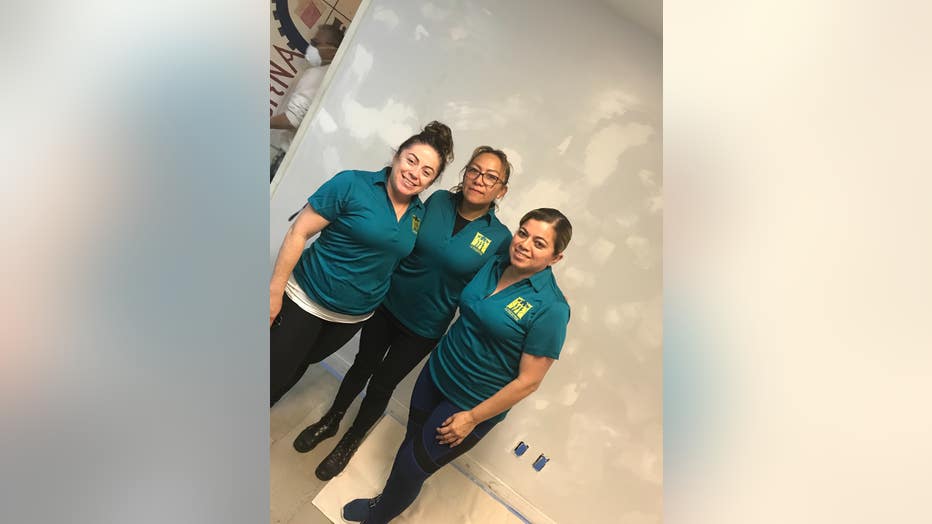Immigrants without work find themselves sleeping on San Francisco streets

FILE ART- A man who works with the San Francisco Day Labor program hauls a cabinet.
SAN FRANCISCO - For the last week or more, Marcos Saul Aurora Gonzalez has been sleeping on a street corner in San Francisco.
He wasn't always homeless. But since the Bay Area stay-at-home order shut down non-essential business, the 37-year-old from El Salvador has not been able to find steady work as a handyman or in construction. He had been staying with his girlfriend but was told to leave her place recently because she lives in a city-owned apartment, which allows only one person to live there.
"There are a lot of people like me," Gonzalez said in Spanish through a translator.
On a recent night, he slept near six other men like himself, he said. These are men who have no jobs, no chance at a federal stimulus boost because of their immigration status, no right to collect unemployment, and now, nowhere to go.
Some of the men have found places for their wives and children to sleep, but they have taken to the streets as there isn't enough room at their friends' and relatives' homes, Gonzalez said. Other families he knows are sleeping in cars. "It's super, super cold in the morning," he said.
The other morning, he was the only one with tortillas and one of the men asked quietly, "Can you share?" The six men sat, six feet apart, on the corner, all taking bites of his meager breakfast. "We gathered there," he said, "sharing our stories. Nobody has enough for rent. None of us had eaten. Everyone is worried about how they will provide for their families."
Coronavirus quarantine is becoming catastrophic for undocumented immigrants
There are an estimated 3 million undocumented immigrants in California and last month, Gov. Gavin Newsom expressed support for them, saying they account for 10% of California's labor force and provide essential services in the state. He also announced a $125 million fund for undocumented immigrants, though none of the money has been distributed.
There are plenty of critics who say people like Gonzalez should not be helped because they came to the country illegally. Two conservative groups sued Newsom over giving taxpayer money to undocumented immigrants.
However, each person who has come to the United States has a personal story about immigrating and the challenge of settling here.
In Gonzalez's case, he fled here about two years ago, escaping MS-13 gangs who had already shot him and vowed to kill him, he said. He has an attorney who is helping him stay in this country permanently. But still, his status is undocumented.
Gonzalez is one of about 250 members of the 30-year-old San Francisco Day Labor Program and Women's Collective, both of which fall under Dolores Street Community Services. Francisco Herrera helped found the program and is now co-director with Guillermina Castallenos. Their operating budget is roughly $800,000 a year.
One of the services the program provides is connecting undocumented workers with people who need help cleaning homes, gardening, landscaping and construction work.
Dispatchers hope that they soon get an influx of calls matching neighbors' needs to laborers and domestic workers who are desperate to provide services and earn a paycheck as the relaxed stay-at-home order for the Bay Area now allows certain outdoor professions.
On Monday, some stay-at-home orders eased, allowing for all construction jobs and landscaping. Cleaning homes and yardwork are also allowed.
Q&A: The status of California's $125M undocumented immigrant fund
Gonzalez has not applied for any of the free hotel rooms in the city, nor has he applied for any grant money.
"I am just focused on getting a job," he said, adding that he typically stands at 26th and Harrison streets in San Francisco, hoping to get hired for the day.

FILE ART - A member of the San Francisco Day Labor program paints a wall.
Gonzalez and his girlfriend, who is a domestic worker, would love to be hired. But they say that so far, they and their friends have been turned down because people are worried about bringing them into their homes, worried they might have coronavirus, especially since he has been sleeping on the streets.
While he is not experiencing any symptoms now, Gonzalez said he, too, is "very afraid of getting sick. I am very, very vulnerable."
Herrera said that's why his program has been pushing to get Gonzalez and San Francisco's other 8,200 homeless people into hotel rooms in the city, and he's frustrated with why it's been taking so long. Herrera also said that per Cal-OSHA guidelines, employers must provide the proper personal protective equipment and sanitizers to workers to keep everyone safe. Laborers in the program are also trained in proper COVID-19 social distancing and procedure, Herrera said.
Newsom: California unemployment hours extended; $125M fund for undocumented immigrants
Gonzalez described his situation as pretty dire.
"I'm at the edge," he said. "If I don't get a job soon, I don't even want to think about the situation I will be in."
Still, despite his life now on the streets, Gonzalez said it's still better here than in El Salvador.
"I have hunger. I have no place to sleep. But it's still better here," he said. "At least I'm not afraid I'll be killed or tortured. The level of violence there is not to be believed."
IF YOU'RE INTERESTED: In hiring a worker from the San Francisco Day Labor Program and Women's Collective call 415-252-5375. More information about the programs can be found here. You can also donate to Fighting for our Workers (or any of the groups listed below.) You can also email Louis Legowsky at the program at sfdlp@3358@gmail.com.

FILE ART - Domestic workers clean homes as part of San Francisco's Women's Collective.
BAY AREA FUNDS TO HELP THE UNDOCUMENTED
Fighting for our Workers (This is the fund that would go directly to Marcos Saul Aurora Gonzalez. You can specify which worker you'd like to honor.)
Dolores Street Community Services
Lisa Fernandez is a reporter for KTVU. Email Lisa at lisa.fernandez@foxtv.com or call her at 510-874-0139. Or follow her on Twitter @ljfernandez

